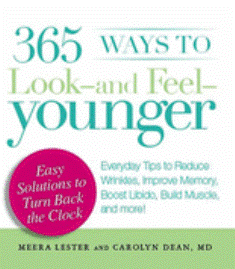Why Moments of Meditation and Mindfulness Matter
When an old crown on a back molar disintegrated, I knew I’d have to get it fixed. What I hadn’t anticipated was a stress fracture in the tooth next to back molar. An infection followed. Then, after ten days of antibiotics, I was scheduled for a root canal. Stressed out doesn’t quite reflect my consternation. I felt like I was losing my mind.
Intending to be centered and calm, I took my seat in the dentist chair and waited for the pain medicine to kick in. I focused on Buddha breathing (during inhalation, the belly rises; it falls during exhalation). Gazing inward and upward in relaxed awareness, I saw a circle of light. My attention flowed into its center.
While thus absorbed on that light and the patterns within it, I lost sense of time. The two and one-half hours in the dentist chair seemed to have happened in a single moment. And on the other side of that experience, I felt peaceful and upbeat.
Harvard researchers have further shown that mindfulness practice changes the brain’s structure. While stress contributes to a variety of illnesses, mindfulness practice counters stress and bestows numerous physical and mental benefits. Studies show that mindfulness lowers blood pressure and heart rate while fostering a happier mood, stronger immune system, and greater sense of well being and self-esteem.
Mindfulness is paying attention to what’s in the moment, rather than fretting about a tomorrow (which you are not promised) or stressing over the past (which you can do nothing about). Mindfulness means you can let go of negative self-talk, worry, and stress and, instead, explore your interiority and inner silence. Or, outwardly focused, you can absorb what your senses are revealing about the environment around you–observing but not judging.
______________________________________________________________
Learn more about living life with intention or engaging in meaningful meditation practices with my wellness and spirituality books. All are available online and in bookstores everywhere.

More than 150 rituals for sound mind, strong body, and meaningful connections to the people around you
Self Care to Release Tension from Farmette Work and Worry
Even before I get out of bed each morning, I meditate. Once my feet hit the floor in our little farm house, I’m working–making coffee, preparing breakfast, and starting laundry. The cell phones begin ringing by eight. It seems virtually impossible to find quiet time after that hour.
The great risk of meditating while lying down is falling back asleep. Sleeping is not meditating.
The mind’s natural tendency is to endlessly flit from thought to thought, like a chicken ever moving and scratching the soil surface for the treasures it holds (worms, bugs, grains). The person meditating aims for focused concentration of the mind to gain the treasure of peace.
A simple practice is to count each cycle of breaths, attaching a number at the end of a cycle: In-out-one, In-out-two. Alternatively, you could repeatedly recite a mantra or prayer. A rosary or prayer beads can help you to keep a count. Meditation is not a religion (although it is associated with some). It is self-care.
Benefits to practicing meditation for even 15 to 20 minutes daily are extraordinary. Through deep mind-body relaxation, you reduce stress and tension accumulated and held in the body. Meditation has been shown to lower heart and respiratory rates, decrease blood pressure, and improve blood flow and circulation. Concentration and brain power improves.
A few years ago, I teamed up with Carolyn Dean, M.D. to write 356 Ways to Look and Feel Younger (Adams Media 2009), a book that explores more of the benefits of meditation and provides daily tips on building muscle, boosting memory, and achieving vibrant health.
My meditation teacher was a powerful yet unassuming Indian who lived in a small village in Gujarat, India where I stayed in the early 1970s. The simple technique of counting breaths I learned from him has always helped me in the stressful types of work I’ve undertaken.
As a respiratory therapist for a large county hospital, I worked in an emergency room and five intensive care units as well as participated in ambulance and helicopter transports of patients. Later, I directed Hollywood screenwriting conferences. Now I work long hours on the farmette, no less stressful but a different kind of work than treating patients or working with writers, producers, and directors.
Through meditation, I rid my body of tension and stress, cultivate a mindful attitude toward all areas of my life, and function more efficiently. Digging fence post holes, caulking windows, chasing chickens, planting trees, canning jams, and harvesting honey requires abundant energy and clear focus. Daily meditation and self care make all the work associated with living such a full life possible without issues associated with physical or mental decline.
 Facebook
Facebook Goodreads
Goodreads LinkedIn
LinkedIn Meera Lester
Meera Lester Twitter
Twitter









